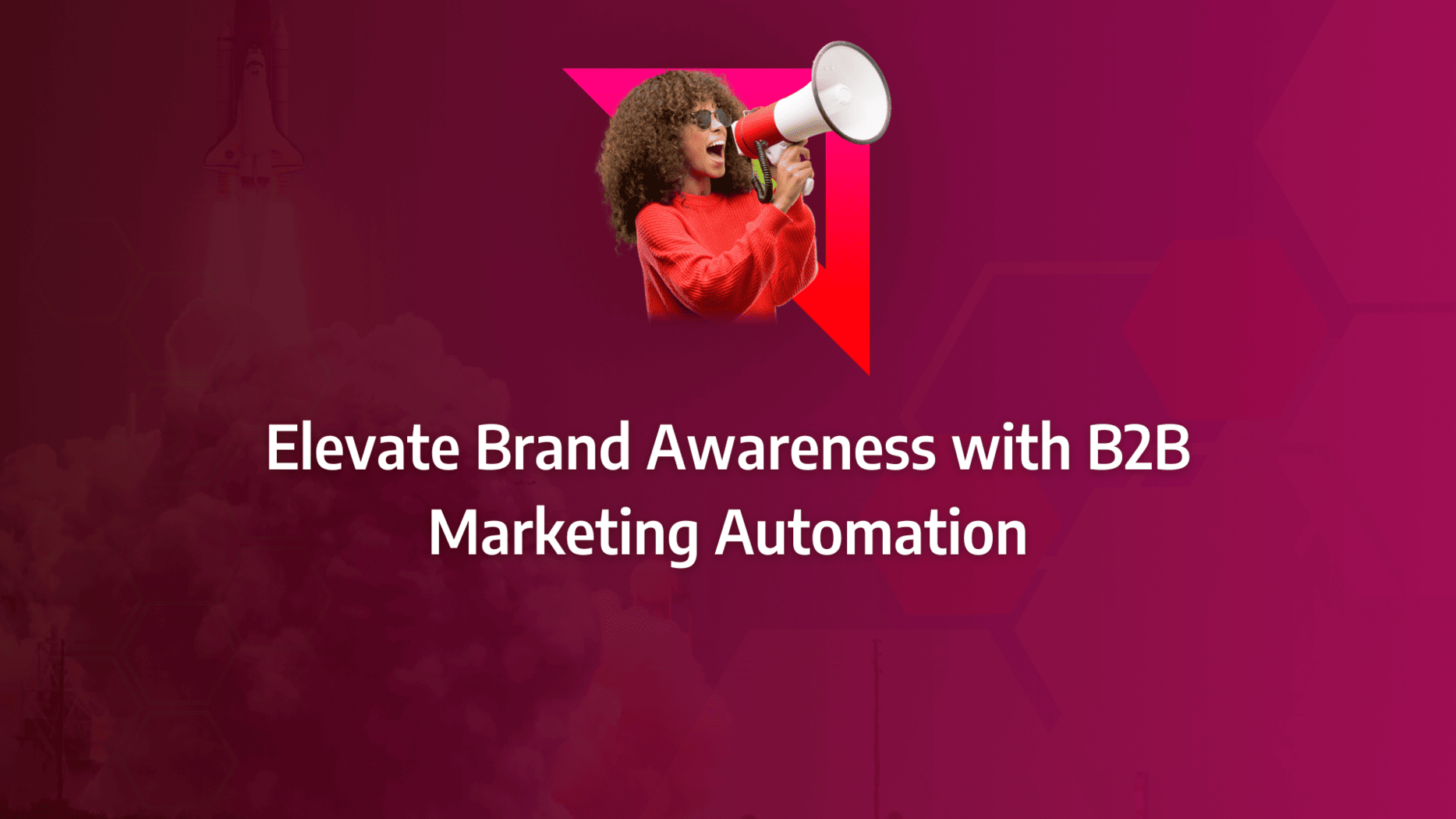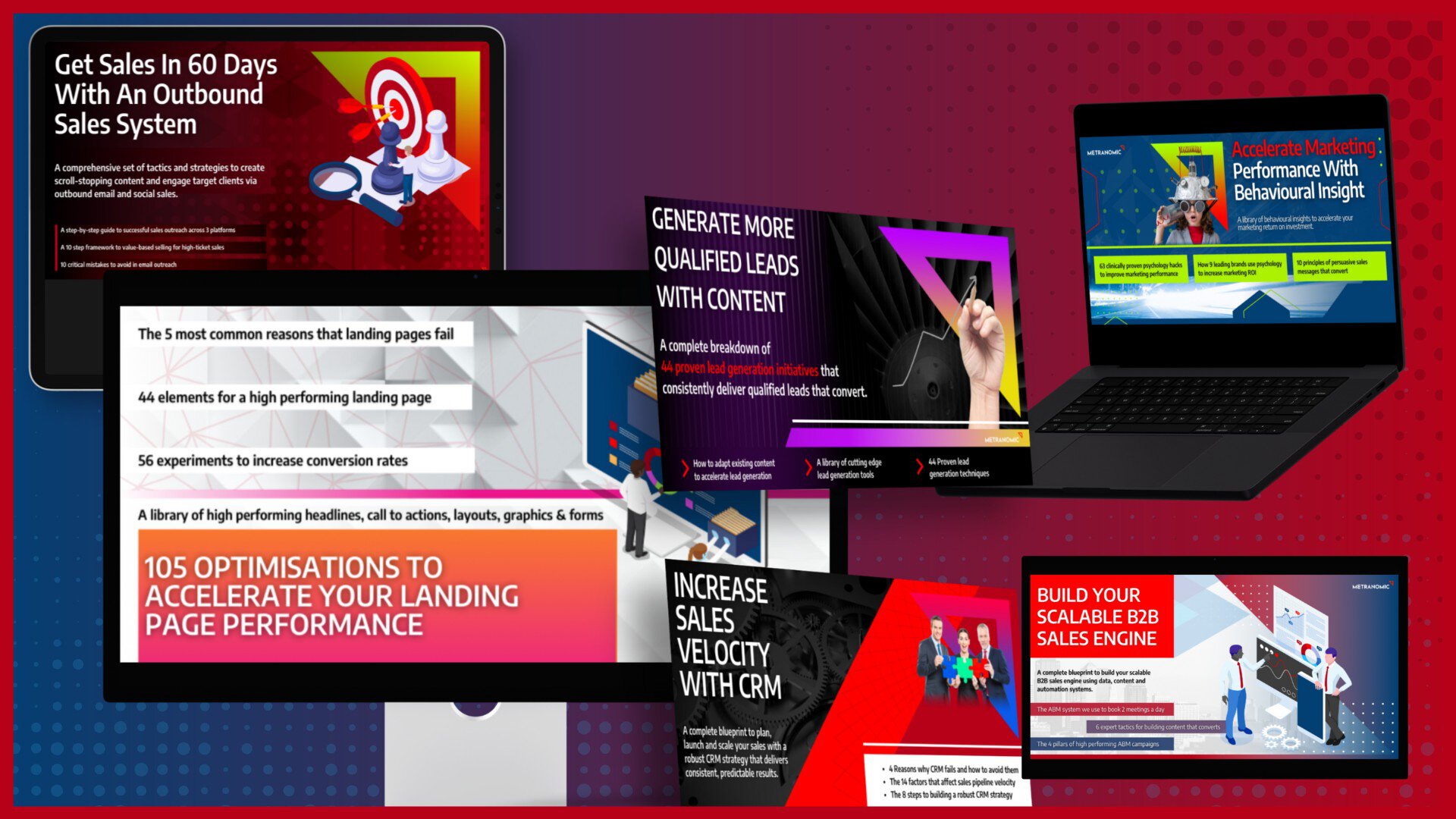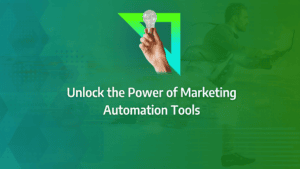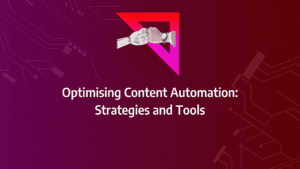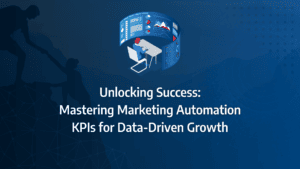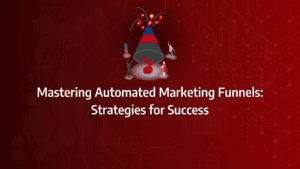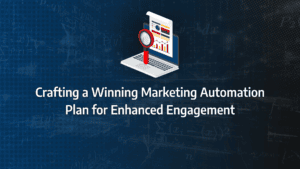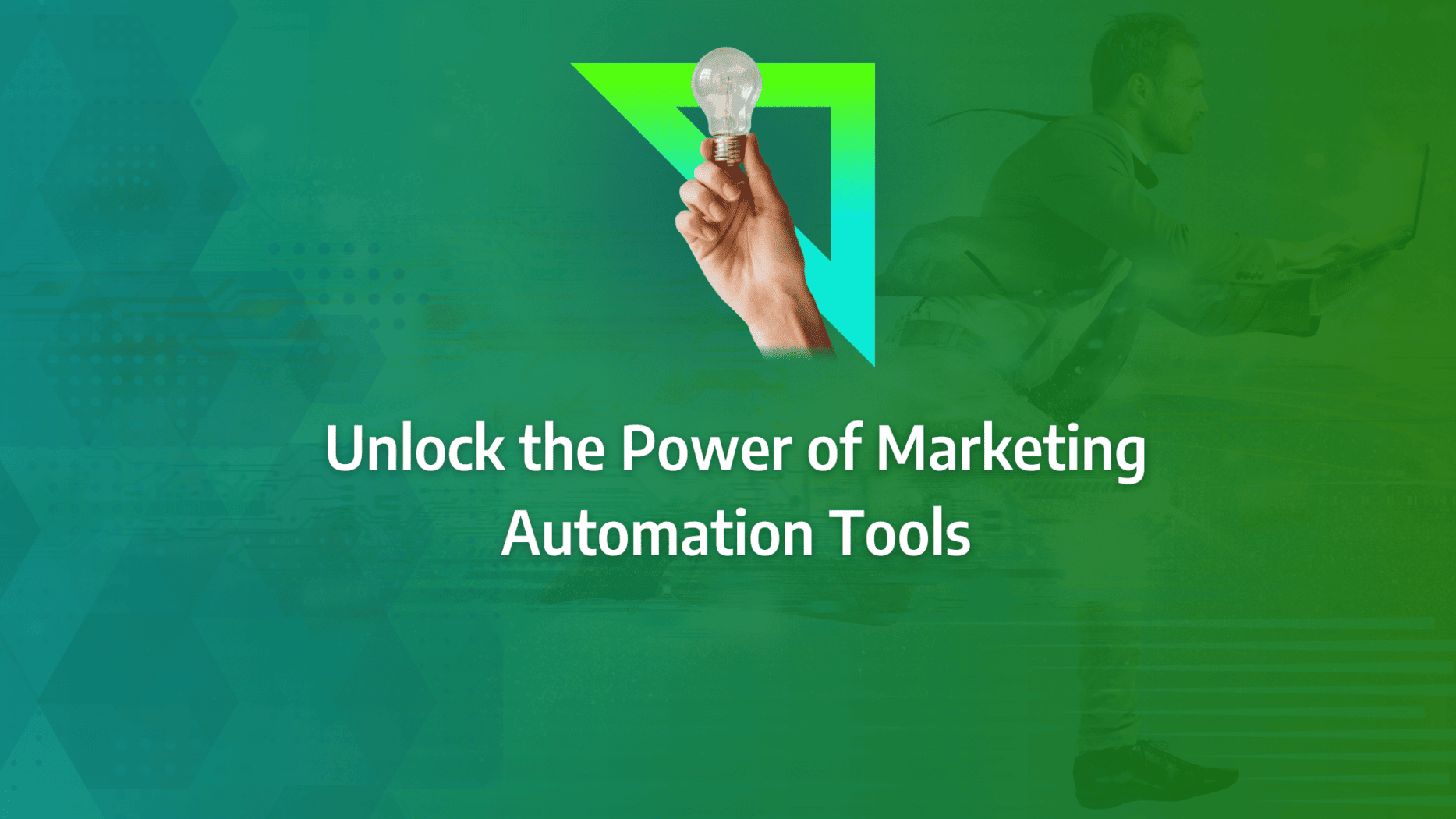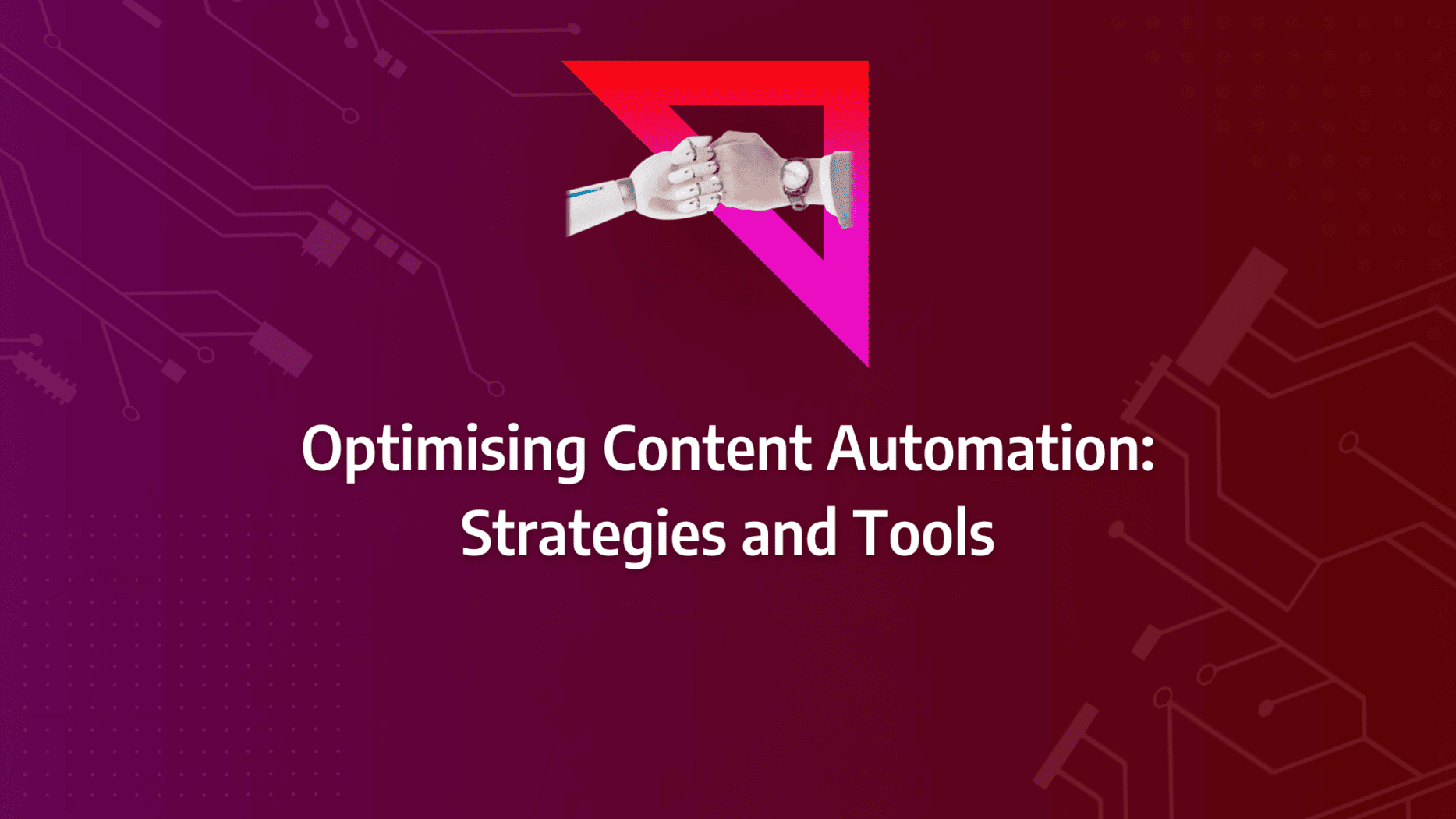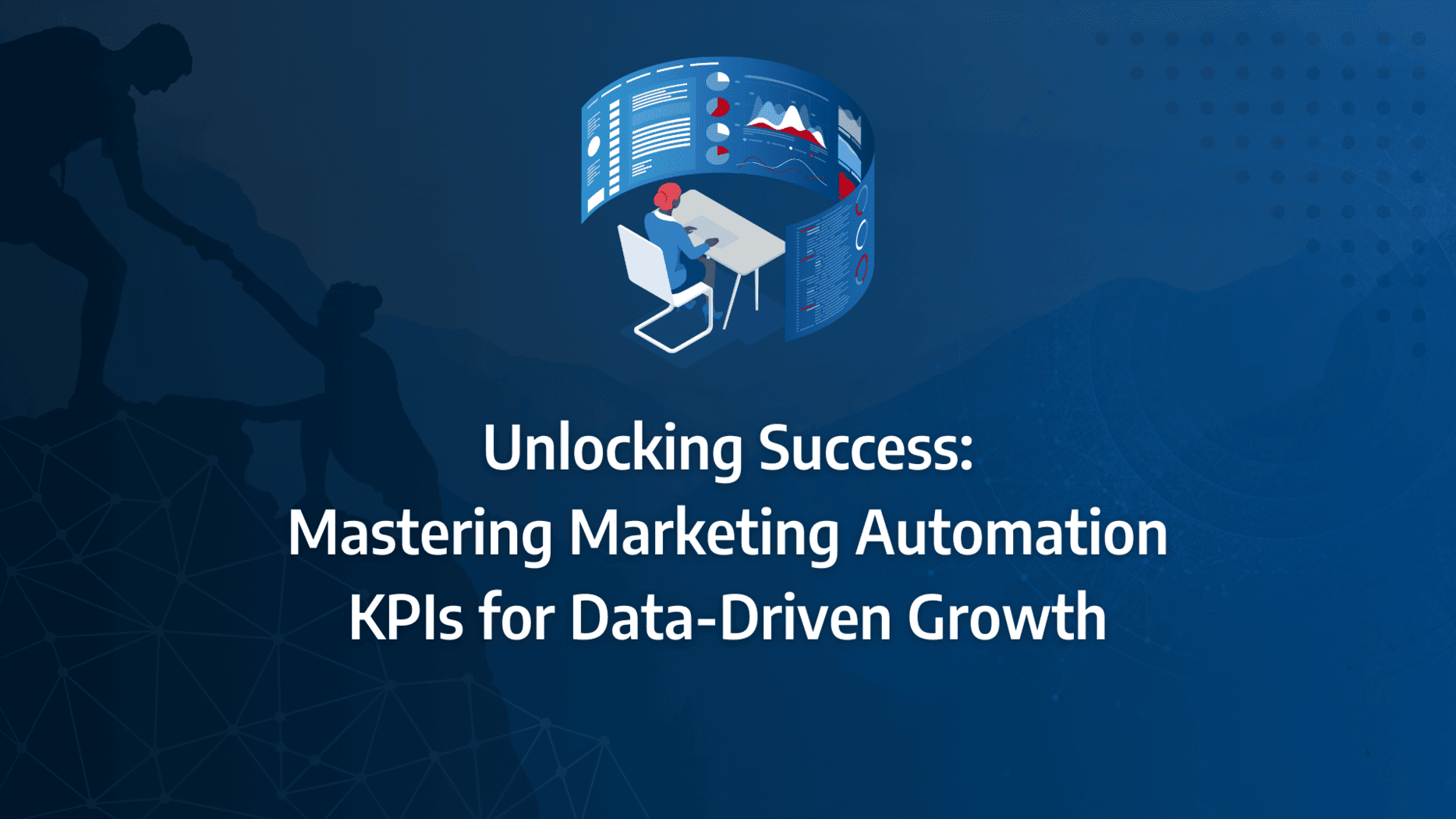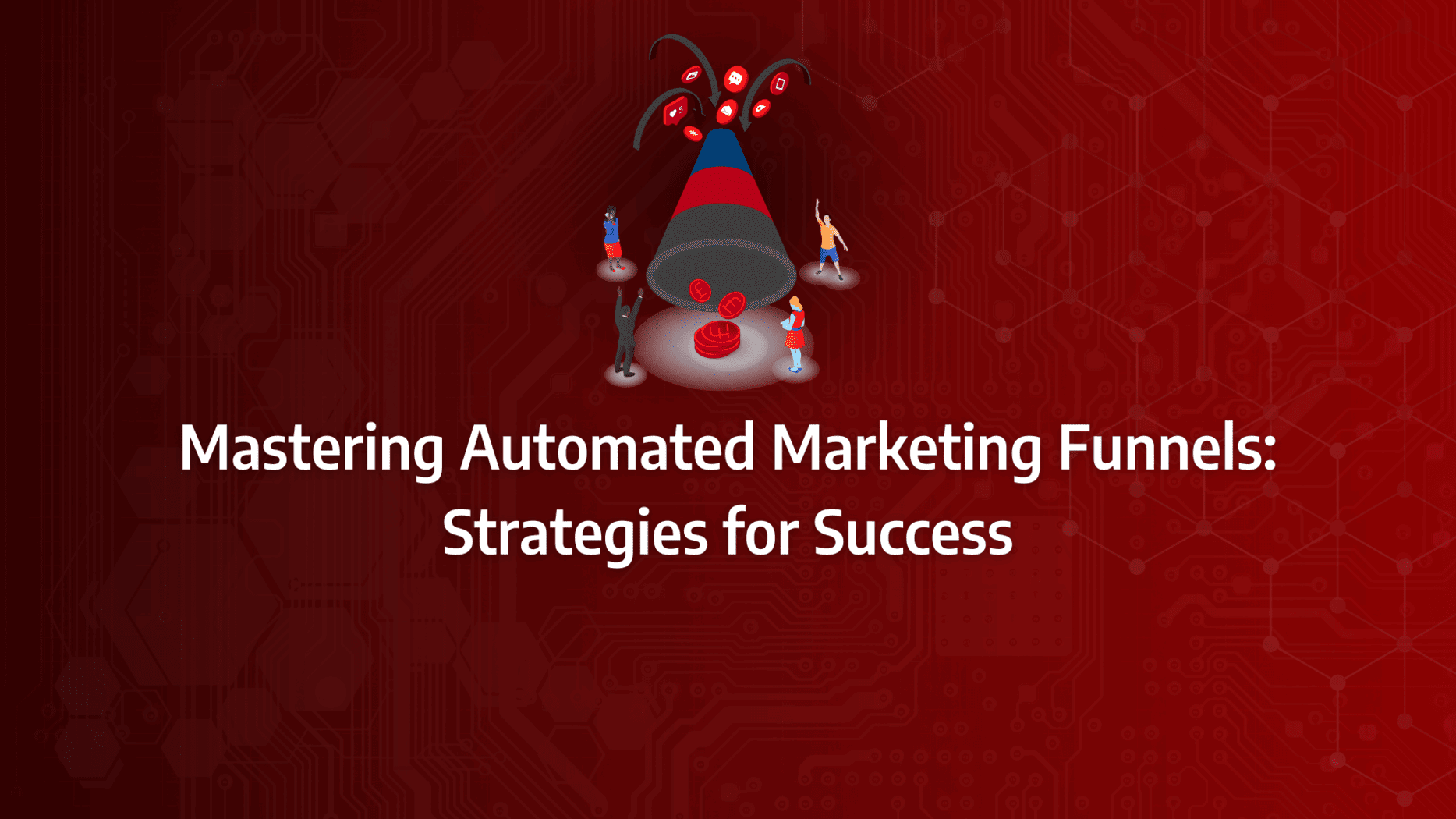Maintaining consistent brand visibility is more challenging than ever. As businesses strive to stand out, the key to success often lies in the strategic use of marketing automation. You might wonder how to effectively utilise these tools to not only streamline your marketing efforts but also to significantly boost brand awareness.
This guide will walk you through proven strategies and essential tools tailored specifically for B2B companies. Whether you’re just starting with marketing automation or looking to refine your existing processes, you’ll discover actionable insights that can help you achieve your goals faster and more efficiently.
- Marketing automation is essential for B2B companies looking to boost brand awareness and streamline marketing efforts.
- Personalisation, lead nurturing, and multi-channel campaigns are critical strategies for successful marketing automation.
- Selecting the right automation tools and platforms is crucial for aligning with business goals and maximising ROI.
- Real-world examples demonstrate how B2B companies have successfully implemented marketing automation strategies.
- Measuring success through key metrics and KPIs ensures that marketing automation efforts lead to sustained brand visibility.
- Integrating marketing automation with content marketing enhances engagement and visibility across multiple channels.
What is B2B Marketing Automation?
B2B marketing automation is the practice of leveraging advanced technology to streamline, optimise, and enhance marketing efforts. It operates through a unified platform, allowing marketers to manage all aspects of campaigns—from email and social media marketing to mobile messaging and advertising—within a single system. By centralising these processes, B2B marketing automation enables marketing teams to drive efficiencies and increase effectiveness.
At the heart of B2B marketing automation is the ability to track and analyse visitor behaviour across multiple channels. By doing so, it creates a seamless, personalised experience for each customer, allowing businesses to guide prospects through a tailored sales funnel. The result? A streamlined pathway from lead generation to customer conversion, where diverse tactics converge to transform a broad pool of leads into loyal, satisfied customers.
What Matters Most?
From our experience, effective marketing automation for B2B relies heavily on creating a seamless and personalised customer journey. Our clients often discover that integrating automation with CRM systems allows for better data flow and deeper insights, enhancing the overall experience. Typically, aligning marketing and sales teams in automation strategies fosters a unified approach, ensuring consistent messaging and improved lead qualification. Additionally, mapping the customer journey helps identify key touchpoints for automation, allowing businesses to engage prospects meaningfully at each stage. This strategic focus ultimately builds trust and drives long-term customer relationships.Get In Touch
Why B2B Marketing Automation is Essential for Complex Markets
B2B marketing automation tools are particularly powerful in B2B markets, where longer sales cycles and complex procurement processes dominate. With multiple decision-makers and a greater emphasis on building long-term relationships, automation proves invaluable. It enables businesses to track interactions, score leads, and deliver personalised experiences that nurture prospects at every stage of the buying journey.
In B2B markets, purchases are rarely impulsive. These transactions are rational and carefully considered, often stretching over several weeks, months, or even years. In this context, marketing automation plays a vital role in education and brand awareness, ensuring that the right message reaches the right person at the right time, all while building lasting relationships.
Taking Leads on a Journey
B2B sales often require longer lead nurturing processes than their B2C counterparts. Prospects may conduct extensive research before ever engaging with a salesperson, making it critical to provide relevant, targeted content at key points along their procurement journey. Marketing automation can facilitate this by creating multiple data points, which are analysed to generate insights, enabling marketers to deliver the right content and guide leads through their decision-making process.
For example, within industries like financial services—where competition is fierce, and millennial buyers expect digital-first experiences—B2B marketing automation strategy allows businesses to scale their operations while maintaining the personal touch. Through precise segmentation, businesses can deliver messages tailored to specific customer needs at the optimal time, ensuring maximum engagement without sacrificing relationship-building efforts.
The Art of Nurturing Leads
Nurturing leads can often be time-consuming and complex, but it is a vital part of converting prospects into paying customers. According to Gleanster Research, 50% of leads are qualified but not yet ready to buy. For small businesses, managing these leads can become a daunting task, especially when sales and marketing resources are stretched thin.
This is where B2B marketing automation tools excel. By automating repetitive tasks such as email follow-ups and content delivery, businesses can nurture these leads without placing undue strain on their teams. The use of a robust B2B marketing automation strategy enables small businesses to stay on top of their leads, ensuring they continue to engage with prospects until they are ready to convert.
Personalising the Customer Journey
Personalisation is at the core of successful lead nurturing. According to Pardot, 77% of buyers expect tailored content at each stage of their research. B2B marketing automation best practices involve using technology to deliver personalised content at scale, ensuring that the right message reaches the right audience at the right time.
With B2B marketing automation tools, it becomes easier to track customer interactions, understand engagement patterns, and refine strategies accordingly. Whether it’s identifying which emails are resonating, tracking social media performance, or measuring the impact of mobile messaging, automation captures critical data that can inform content marketing efforts. For example, Dell successfully leveraged visitor behaviour data to retarget customers based on their activity—boosting click-through rates by 70% and conversions by 300%.
Moreover, the data gathered through automation can be instrumental in qualifying leads for the sales team. Advanced features such as lead scoring and grading allow businesses to prioritise the hottest leads, ensuring they are passed to the right sales representative at the right moment.
Better Data for Smarter Decisions
The rise of “big data” is reshaping how businesses operate, but for many, understanding how to collect, interpret, and act on this data remains a challenge. Marketing automation offers an elegant solution, allowing businesses to gather vast amounts of data at scale and make informed decisions with ease.
By integrating powerful dashboarding and analytics features, B2B marketing automation platforms deliver a comprehensive view of marketing performance. These tools provide closed-loop reporting, allowing businesses to track the impact of their campaigns in real-time. For small businesses, this means making data-driven decisions on a limited budget, using insights to refine tactics and improve results.
One key advantage of these platforms is the ability to develop a complete profile of each prospect, enabling marketers to test, learn, and optimise. A/B testing marketing assets, for example, helps pinpoint which strategies yield the highest conversion rates, ensuring that every piece of content contributes to the bottom line.
What features should a marketing automation platform have for B2B businesses?
B2B marketing automation tools provide numerous features designed to optimise the efficiency and effectiveness of marketing campaigns. These tools are invaluable in today’s competitive market, helping teams streamline processes, improve targeting, and gain insights that drive better decision-making. Below are the key features that any robust B2B marketing automation platform must offer.
Feature #1: Visitor Tracking
Visitor tracking is one of the most powerful tools in the B2B marketing automation toolkit. It enables you to monitor who is visiting your website, how much time they are spending on each page, and what specific content they are engaging with. This provides invaluable insights into your audience’s interests and behaviour. Knowing exactly who is viewing your site and what content resonates with them allows you to fine-tune your strategy. Such insights are critical when developing a data-driven B2B marketing automation strategy aimed at improving conversion rates.
Feature #2: Hosting Marketing Content
A strong B2B marketing automation platform enables you to host your marketing content, seamlessly integrating it into your website. Whether it’s downloadable assets like whitepapers or landing pages designed for email campaigns, these platforms make content distribution effortless. By hosting content through the automation platform, you not only simplify access for users but also make tracking and analysis more straightforward. In B2B marketing automation, having visibility on how each piece of content performs is key to refining strategies and improving customer engagement.
Feature #3: Content Performance Tracking
Content hosting is just the beginning. The real value of B2B marketing automation tools lies in their ability to track how your content performs across various channels. This feature allows you to see which pieces of content are driving the most engagement, and, more importantly, what needs improvement. Effective B2B marketing automation best practices suggest continual testing and iteration based on performance data. By understanding what’s working and what isn’t, you can ensure your campaigns are always optimised for maximum impact.
Feature #4: Tracking Prospect Activities
One of the more labour-intensive tasks for sales and marketing teams is tracking prospect activity as they move through the sales funnel. B2B marketing automation tools make this process seamless by automatically notifying your team when a lead takes a key action—such as downloading content or engaging with a specific email—indicating they are closer to conversion. This functionality allows your sales and marketing teams to focus on the most qualified leads at the right time, enhancing the efficiency of your overall lead management process.
Feature #5: Lead Scoring and Grading
Not all leads are created equal. Some prospects are ready to buy; others need nurturing. With lead scoring and grading, you can assign values to prospects based on their actions, demographics, or firmographics. This ensures that high-potential leads receive the attention they deserve. Advanced B2B marketing automation strategy involves using these tools to prioritise the most sales-ready leads, making it easier for your team to close deals faster.
Feature #6: Automating Lead Assignments
Building on the lead scoring system, automating lead assignment takes the guesswork out of distributing leads to your sales team. Once a prospect reaches a certain score—determined by your predefined criteria—your B2B marketing automation platform can automatically assign them to a sales representative. This ensures no opportunity is missed, and your team can focus on closing deals. Whether you assign leads alphabetically, by territory, or through a round-robin system, B2B marketing automation best practices highlight the importance of reducing manual processes in lead management.
Source: Business2Community
Feature #7: Lead Nurturing
Lead nurturing is a cornerstone of any successful B2B marketing automation strategy. It allows your sales team to focus their energy on the most promising leads, rather than wasting time on prospects who are not yet ready to make a purchase. Lead nurturing targets early-stage leads that require education and ongoing engagement, ensuring they remain aware of your brand and its offerings as they progress through their buying journey.
This process is often referred to as “drip marketing,” wherein small, consistent amounts of content are delivered over time to keep your brand top-of-mind. The end goal is that when these leads are finally ready to make a purchase, your brand will be the one they think of first. It’s also important to note that lead nurturing isn’t limited to new prospects; it can be applied throughout the customer lifecycle to drive retention, loyalty, and upselling opportunities.
Feature #8: Building Landing Pages & Forms
Effective landing pages and forms are essential to the success of any B2B marketing automation strategy. These elements serve as the primary means of capturing leads and driving engagement with your brand. A robust B2B marketing automation tool will allow you to build and customise professional landing pages and forms without needing any coding expertise.
These tools typically come equipped with intuitive drag-and-drop interfaces, making it easy to create landing pages that reflect your brand’s identity while also being optimised for conversions. Additionally, automation platforms track the performance of these landing pages and forms, enabling you to adjust and improve them based on real-time data. You can also set triggers to automate follow-up actions based on user behaviour, such as sending an email or increasing a lead score when a prospect completes a form.
Feature #9: Progressive Profiling (Shortening Forms)
Forms are a critical tool for gathering information about your leads, but long, cumbersome forms can deter potential customers. This is where progressive profiling comes into play. One of the best B2B marketing automation best practices, progressive profiling allows you to gradually collect more detailed information from leads over time.
Initially, prospects are asked to fill out only the most essential form fields. Once they’ve provided that information, future forms will ask for additional data, allowing you to build a comprehensive profile of the lead over time without overwhelming them. This approach enhances lead generation efficiency and ensures you gather the most relevant information with each interaction.
Feature #10: Mobile Marketing
In today’s mobile-first world, any B2B marketing automation tool must include robust mobile marketing features. Mobile accessibility allows you to manage your campaigns on-the-go, whether from a smartphone or tablet, ensuring you can stay connected to your strategy wherever you are.
Mobile marketing enables you to define target audiences based on mobile behaviours, test different channels, and optimise campaigns in real time. As businesses increasingly rely on smartphones and tablets to drive operations, mobile marketing has emerged as a vital component of any B2B marketing automation strategy.
Feature #11: Reporting and Analytics
The ability to track, measure, and evaluate the success of your marketing campaigns is critical to ensuring ongoing improvement and optimal performance. That’s why a comprehensive reporting and analytics feature is an indispensable part of any B2B marketing automation tool.
These platforms collect vast amounts of data on your campaigns, which can then be interpreted and visualised in dashboards and reports. From here, you can test alternative campaign strategies, compare results, and make informed adjustments. Closed-loop reporting also enables you to see how marketing efforts directly contribute to sales outcomes, ensuring complete alignment between your marketing and sales teams.
Feature #12: Content and SEO Tools
Creating high-quality content and ensuring it reaches the right audience is essential for any B2B business. B2B marketing automation best practices dictate that automation platforms should include integrated content management and SEO tools. These tools allow you to develop, distribute, and promote content across various channels while optimising for search engines.
SEO tools help ensure your content is discoverable by your target audience, boosting your website’s visibility in search engine results. Automation platforms can also facilitate multichannel distribution, ensuring your content reaches users through email, social media, and other digital touchpoints, driving traffic and engagement.
Feature #13: A/B Testing
A/B testing is one of the most effective ways to optimise your marketing efforts and improve lead generation. This feature allows you to experiment with different versions of webpages, email templates, or other marketing assets to determine which performs best with your audience.
By using A/B testing, you can make data-driven decisions to refine your B2B marketing automation strategy. Testing elements such as headlines, calls-to-action, or layouts can dramatically improve the effectiveness of your campaigns. The goal is to identify what resonates most with your prospects and continually improve your approach based on solid data.
What are some popular marketing automation tools for B2B companies?
Selecting the right tool can make or break your strategy. From streamlining email campaigns to integrating with CRM systems, the right B2B marketing automation tools can take your marketing efforts to the next level. Below are some of the leading tools available, each offering unique features and functionality to suit different business needs.
1. Adobe Marketo Engage
Adobe Marketo Engage is perhaps the most recognised name in B2B marketing automation, and with good reason. It’s one of the most comprehensive and mature platforms available, offering an array of advanced features that allow marketers to manage not just email campaigns but also integrate with sales teams for seamless marketing-sales alignment.
Marketo’s vast marketplace includes integrations with social media platforms, CRM systems, paid advertising tools, and more, making it a versatile choice for businesses that need to manage multiple marketing channels.
Who it’s for:
Marketo Engage is ideal for companies that are looking to scale their marketing efforts beyond the basics. If you’re aiming to automate more than just email—such as social media posts, paid advertising, or even lead scoring—this platform offers a full suite of features to support your strategy.
While it’s not the most affordable option, it provides excellent value for companies looking for a comprehensive B2B marketing automation strategy. However, if your business only needs the fundamentals, you might achieve similar results with a more cost-effective solution. But for those who plan to grow into more advanced functionalities in the future, starting with Marketo can save the hassle of migrating data and campaigns later.
Marketo’s extensive knowledge base is another standout feature, offering ample resources for new users looking to get the most out of the platform.
2. Oracle Eloqua
Oracle Eloqua is often considered the “Ferrari” of B2B marketing automation tools, and it lives up to its reputation. Fully loaded with features and exceptional customer support, this platform comes at a premium price but delivers unmatched performance.
With a strong emphasis on personalisation, Oracle Eloqua excels at creating highly tailored experiences for leads and customers. It includes detailed lead scoring systems, enabling businesses to prioritise hot leads while nurturing those that need more time to convert.
One of the standout features of Eloqua is its AI-driven data collection, which helps businesses gain a holistic view of their customer journeys. This enables more precise campaign decisions, making it a highly effective tool for businesses that require advanced data insights.
Who it’s for:
Oracle Eloqua is perfect for businesses that want top-tier personalisation capabilities combined with a high level of customer support. Its built-in educational resources and training programmes also make it a strong option for companies that are new to marketing automation and want to upskill their teams.
Much like Adobe Marketo Engage, Eloqua integrates with a variety of third-party platforms, including CRM systems and social media, making it an all-encompassing solution for sophisticated B2B marketing automation strategies.
Source: NucleusResearch
3. Customer.io
Customer.io is a flexible option, offering customisable solutions that allow businesses to create a tailored B2B marketing automation strategy. Unlike some platforms that offer out-of-the-box solutions, Customer.io gives you the freedom to build a system that meets your specific needs—provided you have the developer resources to do so.
One of the key selling points of Customer.io is its ability to trigger emails based on events, rather than just pageviews. This allows for more timely and relevant messaging, ensuring that your emails reach leads at the most opportune moment, which is a hallmark of B2B marketing automation best practices.
Who it’s for:
Customer.io is ideal for businesses that have developer capabilities and want to customise their marketing automation experience. Its lightweight user interface and responsive customer support make it an appealing option for companies seeking flexibility without sacrificing usability.
For businesses looking to elevate their email marketing game, Customer.io provides the tools to create highly personalised and event-driven campaigns, a crucial component of any effective B2B marketing automation strategy.
4. Constant Contact
In the early days, Constant Contact was primarily recognised for its excellence in email marketing, but it has since evolved into one of the most versatile B2B marketing automation tools available today. It now provides a wide range of features that extend far beyond email, making it a solid choice for businesses at any stage of their marketing journey.
For beginners, Constant Contact offers simple, customisable sign-up forms, intuitive email marketing functionality, and even a social media posting feature. These tools are ideal for marketers looking for straightforward yet effective ways to engage their audience without technical complexity.
For businesses that are more established, Constant Contact delivers additional value by offering tools for creating online ads, personalisation, and video marketing. Advanced features such as audience segmentation, custom automation, and enhanced email marketing capabilities allow seasoned marketers to fully develop and execute their B2B marketing automation strategy.
What sets Constant Contact apart is its ease of use and affordability. For marketers on a limited budget who still require a powerful, intuitive product, Constant Contact is difficult to surpass. Furthermore, with the integration of its AI-driven automation, it has never been simpler to automate email marketing, social media posts, and virtually every other aspect of a digital marketing campaign. By simply inputting a prompt, Constant Contact’s AI takes care of the rest, streamlining marketing efforts and driving efficiency.
5. HubSpot
HubSpot is a double-edged sword. On the one hand, its all-in-one approach means it offers a broad spectrum of tools, from CRM to marketing automation. On the other, while it does a lot of things well, it doesn’t specialise in any one area as deeply as some other B2B marketing automation tools.
As an “inbound marketing software”, HubSpot enables marketing teams to automate lead nurturing through drip email campaigns. It features workflows, email triggers, and chatbots that help businesses maintain a personalised connection with prospects. These automation features allow companies to streamline their lead management processes while still offering a highly tailored customer experience.
HubSpot is also highly data-driven, enabling businesses to leverage a wide range of customer data to fine-tune their B2B marketing automation strategy. Its Marketing Hub offers a wealth of resources for learning how to optimise all aspects of a campaign, from email marketing and social media management to utilising customer data for better insights.
For businesses seeking an all-in-one platform that covers many bases, HubSpot’s convenience and range of functionality make it a worthy contender. And, with a solid reputation for quality customer support, HubSpot remains one of the best B2B marketing automation tools available.
6. Salesforce Marketing Cloud
Formerly known as ExactTarget and later rebranded under Salesforce, the Salesforce Marketing Cloud has established itself as one of the most impressive B2B marketing automation tools on the market. This platform is particularly well-regarded for its ability to facilitate communications across multiple channels, setting it apart from tools that focus mainly on email marketing.
One standout feature of Salesforce Marketing Cloud is its capacity to target communications over a wide range of platforms, from mobile app notifications to email and even car dashboard messaging (perfect for industries such as automotive). The platform also supports advanced personalisation, allowing marketers to create bespoke customer journeys with automatic lead scoring and intelligent nurturing tactics.
Salesforce’s approach goes beyond standard automation. It prioritises alignment between sales and marketing teams, ensuring clear and consistent communication across the board. This tight integration maximises engagement with the Salesforce Marketing Cloud, leading to a more efficient and cohesive B2B marketing automation strategy.
With advanced features like automated emails, intelligent lead nurturing, and personalised touchpoints, this platform offers a sophisticated approach to B2B marketing automation best practices, making it a top choice for companies that need to manage large-scale campaigns across multiple channels.
Our Tactical Recommendations
We often find that segmenting our audience leads to more relevant and engaging automated content. We typically recommend employing A/B testing within automation workflows to refine messaging and timing for improved conversions. Additionally, incorporating automated follow-up messages ensures leads remain engaged after initial interactions, whilst leveraging retargeting strategies keeps your brand top of mind for potential customers.Get In Touch
How to Easily Implement B2B Marketing Automation into Your Company
Implementing B2B marketing automation tools into your company can significantly enhance your operational efficiency and improve your overall marketing strategy. However, to ensure a seamless transition, it’s crucial to follow a structured process. Here’s a step-by-step guide on how to implement marketing automation effectively, using B2B marketing automation best practices.
1. Make a Plan
The foundation of a successful B2B marketing automation strategy is meticulous planning. Before diving into the technical setup, it’s essential to draft a detailed, documented plan that outlines key elements such as:
- Technical requirements: What will your development or IT team need to configure? This could include domain setup for emails, whitelisting IP addresses, or adding tracking codes to your website.
- User permissions: Who in your team will be using the platform, and what level of access should each person have?
- Initial integrations: Identify which systems need to integrate with your automation tool from the start (e.g. CRM, third-party apps).
- Data structure: Consider how your data will be organised—think about how you’ll manage lists, tags, segmentation, and automation rules.
- Data migration: Plan the migration of existing prospect data into the new system. Will you be migrating from another platform, and what method will you use?
- Folder and campaign structure: Outline how your campaigns and assets will be organised to ensure ease of reporting and ongoing management.
- Forms and templates: Will you need to migrate or update existing forms, landing pages, or email templates?
- Lead management system: Confirm if a lead management system is in place and ensure all relevant team members are trained on how to use it.
- Onboarding and training: Ensure that staff receive the necessary training to get up to speed with the new system.
The key takeaway here is that the automation tool is designed to execute your pre-established marketing strategy, not replace it. The most successful implementations align closely with the overall business and marketing objectives. Focus on organising your lists and segmentation to support your B2B marketing automation strategy.
2. Technical Setup
The next step in implementing B2B marketing automation tools is to complete the technical setup, which is critical to ensuring the smooth delivery and tracking of your campaigns.
- Domain configuration: Proper domain setup is vital for email deliverability. You’ll need to configure your Sender Policy Framework (SPF) and DKIM (DomainKeys Identified Mail) records in your Domain Name System (DNS). These settings help verify your emails and prevent them from landing in spam folders.
- Separate campaign domain: It’s also wise to consider using a separate domain for your marketing campaigns. This ensures that any potential issues with sender reputation won’t impact your business’s primary email communications.
- Tracking code and GDPR compliance: To monitor the behaviour of your email subscribers on your website, you’ll need to install or update tracking codes. Additionally, ensure that your website’s tracking preferences and Privacy Policy page comply with GDPR regulations to protect your business from legal complications.
Completing these technical tasks is essential to ensuring that your email campaigns are sent and tracked correctly, allowing you to optimise your B2B marketing automation strategy effectively.
3. Import Data
With your plan in place and the technical setup complete, you’re ready to import your data. A smooth data migration process is vital to making the most of your B2B marketing automation tools.
- Prepare your data: Before importing your database, take time to cleanse the data. Remove any outdated or incorrect information to ensure that your contacts are as accurate and up-to-date as possible. Clean data will enhance your automation results and lead to more precise targeting.
- Mapping data fields: When importing from a spreadsheet, ensure you map each column to the corresponding data fields in your new automation system. For example, map first names, last names, email addresses, and other relevant fields accurately.
- Testing the import: Before transferring an entire database, it’s always a good idea to test the import by uploading a small batch of records. This will help you identify any issues with mapping or formatting before dealing with larger datasets.
4. Integrate with Your CRM
It’s surprising how many businesses still use their B2B marketing automation tools in isolation from their CRM systems. To truly manage and track a customer’s journey, from the very first interaction through to closing a sale, it’s essential to integrate your CRM with your marketing automation platform. This integration ensures you have a unified view of each customer’s lifecycle, allowing your teams to make more informed decisions.
Depending on the CRM and automation platforms you’re using, this process can either be straightforward or require some additional effort. For example, businesses that use Pardot for B2B marketing automation and Salesforce as their CRM benefit from a seamless integration, as both products are owned by Salesforce. This integration ensures that data syncs automatically, giving your teams full visibility of every lead’s journey from initial contact through to conversion.
However, if you’re using platforms that don’t offer native integrations, you might need to invest in custom-built solutions. While this can involve additional cost and resources, it’s crucial to ensure that both platforms—and the teams using them—stay aligned. In cases where a full integration isn’t feasible, manual imports or a more hands-on approach to lead management may be necessary to maintain cohesion.
5. Organise Campaigns and Assets Effectively
The way you organise your marketing assets can significantly impact the effectiveness of your B2B marketing automation strategy. Grouping assets in a logical and systematic way makes it easier for your team to manage campaigns, track performance, and ensure consistency across all your marketing efforts.
Many B2B marketing automation tools allow you to create folders that house all assets related to a specific campaign. This structure not only streamlines your workflow but also enables you to quickly evaluate the performance of individual assets and campaigns as a whole. By keeping everything in one place, your team can more efficiently measure what’s working and what needs adjustment.
Regardless of the automation platform you use, it’s important to establish a clear system from the outset. Create naming conventions that make it easy to identify assets, campaigns, and templates, and put processes in place to regularly audit and remove drafts or outdated content that’s no longer relevant. This level of organisation is key to maximising the potential of your B2B marketing automation best practices and keeping your system running smoothly.
